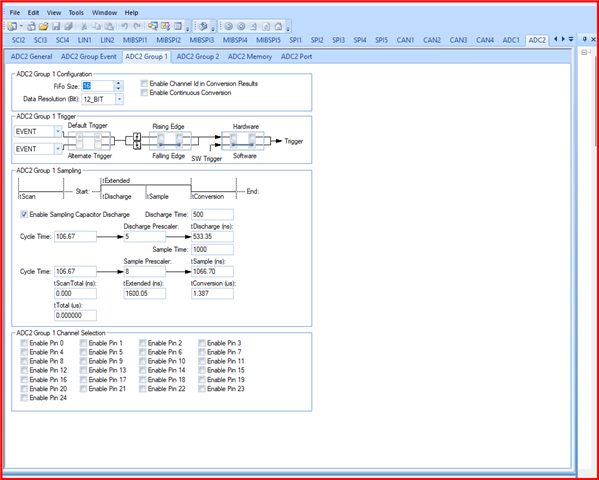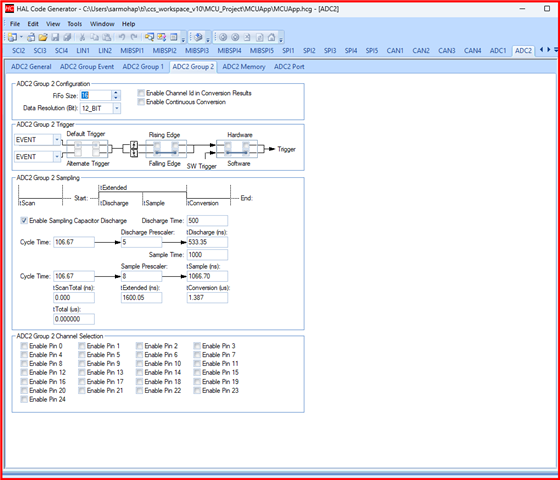Other Parts Discussed in Thread: HALCOGEN
Tool/software:
Hello,
I followed below link and trying to read the Junction temperature on ADC2 module from Temperature Sensor - 3. The ADC count seems to be suspicious.
ADC value = 1351 (With different application like FreeRTOS application with busy loop, I get 1481 ....)
Slope and Offset calculated from Calibration Data, offset = 170.50, slope = 0.17
JunctionTempK = (((float)value) - Thermistor_Fit.offset) * Thermistor_Fit.slope;
With the above , JunctionTempK = (1351 - 170.50) * 0.17 = 200.68K => this is too cold. with 1481 it comes to 222.78 which looks suspicious.
I think the pimux/ADC registers seem to be correct, as I see the ADC count changing depending on load on the MCU. Do I need to use any scaling factor, what am I missing?
Note - I have not modified any code , just using the source code from below link.
Regards,
Sarbeswar






